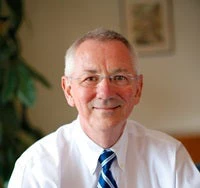Here in New York this week, world leaders have their plates full. Five years to go, and progress towards the Millennium Development Goals (MDGs) is mixed. Accelerated action is needed urgently. So with this full agenda, why are there so many meetings this week on climate change? Because climate change is about poverty reduction. Developing countries will bear three-quarters of the negative impact of changing weather patterns, water shortages, and rising sea levels, and they are the least equipped to deal with them. Hard won gains in poverty reduction are at serious risk. This is no longer just tomorrow's problem. Impacts are being felt today.
 There is an old-fashioned view that rich countries can afford to think about climate change but developing countries have more urgent short-term needs. This is well and truly debunked by the evidence of where developing countries are putting their money. Four out of five countries we work with, list climate change among the top priorities for their anti-poverty plans. In the past twelve months, nearly 90% of Country Assistance Strategies requested by developing countries, and approved by the World Bank’s Board, listed climate change as one of the major pillars for World Bank support.
There is an old-fashioned view that rich countries can afford to think about climate change but developing countries have more urgent short-term needs. This is well and truly debunked by the evidence of where developing countries are putting their money. Four out of five countries we work with, list climate change among the top priorities for their anti-poverty plans. In the past twelve months, nearly 90% of Country Assistance Strategies requested by developing countries, and approved by the World Bank’s Board, listed climate change as one of the major pillars for World Bank support.
Consequently, as of today, we are actively engaged with 100 countries, supporting their efforts on adaptation and mitigation. Last week, for example, the World Bank launched a US$6.1 billion strategy to support anti-poverty efforts in Bangladesh through 2014, and reducing vulnerability to climate change is one of the four pillars of the strategy.
This explains why another old-fashioned view also needs to be sent to the dustbin. Sometimes we hear the question: why is the World Bank engaged in climate change? I have even heard people say "the World Bank should focus on its core job of poverty reduction. Leave climate change to others". This misses the sad reality that in this new Millennium it would be simply impossible to remain the premier global institution devoted to a world free from poverty without making climate change a core part of our work.
This is why we believe that a strong, fair global deal on climate change is essential if the full promise on the MDGs is to be met. And we are working hard with our partner countries towards this end. But we're not waiting for it. Neither are the countries we serve.


Join the Conversation